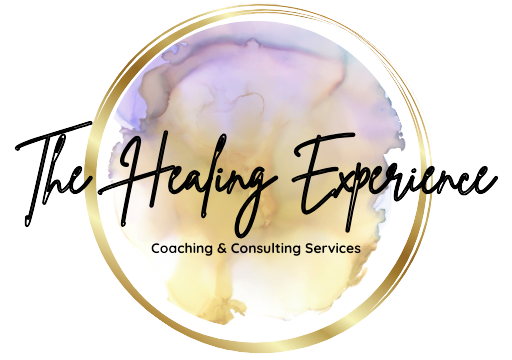
How Your Narcissistic Family Has You Distrusting the World and Others
Growing up in a narcissistic family can leave deep scars, particularly in how we view and interact with the world and others. When those who are supposed to nurture and protect us instead manipulate and belittle us, it creates a skewed perception of relationships and trust. If you’ve ever wondered why, you find it hard to trust others, your narcissistic family background may be a significant factor. No one really talks about the psychological impact of growing up and being around individuals you consider family with this personality type. Can you imagine growing up with people who you think have your best interest but who have tainted your vision of the world? Because let’s face it, that’s really all you know…
Understanding Narcissistic Families
Narcissistic families are characterized by a dysfunctional dynamic where one or more members, typically a parent, exhibit narcissistic traits. You may even be in disbelief or contemplation, trying to make sense of all this! As a licensed mental health therapist, one of the biggest difficulties I have witnessed when working with individuals struggling to understand this dysfunctional cycle is people trying to accept the circumstances that their family dynamic has created. Shocked and sometimes sill in disbelief, this acceptance often leads to confusion and emotional turmoil, making it even harder to break free from the cycle. These traits include a lack of empathy, a constant need for admiration, and an inflated sense of self-importance. In such families, the needs and feelings of the narcissist take precedence over those of others, often leading to emotional manipulation and abuse.
The Impact on Trust
- Betrayal of Trust: In a narcissistic family, trust is often betrayed repeatedly. Promises are broken, secrets are shared, and emotional support is inconsistent. This teaches you that people are unreliable and untrustworthy.
- Gaslighting: Narcissistic family members often engage in gaslighting, making you doubt your own reality and perceptions. This constant manipulation can make it difficult to trust your own judgment, let alone the intentions of others.
- Conditional Love: Love and approval in a narcissistic family are typically conditional, based on whether you meet the narcissist’s needs or expectations. This can create a belief that love and acceptance must be earned, making it hard to trust in unconditional love and support from others.
Impact of Distrust — How it Affects the Individual
- Hypervigilance: Growing up in a narcissistic environment often means you’re always on alert, waiting for the next emotional attack. This hypervigilance can carry over into adulthood, making it difficult to relax and trust others.
- Difficulty Forming Relationships: Trust issues can make it hard to form close relationships. You may keep others at arm’s length, fearing betrayal or manipulation.
- Self-Isolation: To protect yourself from potential harm, you might choose to isolate yourself, avoiding close connections and the vulnerability that comes with them.
- Over-Dependence on Self: You may become overly self-reliant, believing that you can only trust yourself to meet your needs and protect your emotional well-being.
Healing from the Past
Healing from the impact of a narcissistic family is a challenging but essential process. If a person wants to break this toxic cycle so that they can start living again, there are several critical steps that is involved in this process! Here are some steps that can help:
- Self-Acceptance: The first one is to admit to self that this family dynamic is not conducive to your mental health and well-being. You are really going to have to choose you over them! Accept it for what it is, AND WHAT IT IS NOT! Do not continue to think they will change or deflect from the feelings and emotions that you are experiencing -they are valid! This is not normal- this is toxic, and you owe it to yourself to live a healthy life.
- Self-Compassion: Cultivate self-compassion and recognize that your trust issues are a natural response to your past experiences. Be gentle with yourself as you work through these challenges.
- Setting Boundaries: Learn to set and enforce healthy boundaries. This helps protect your emotional well-being and fosters a sense of safety in relationships.
- Challenging Negative Beliefs: Actively challenge the negative beliefs you hold about yourself and others. Replace them with more balanced, positive thoughts through affirmations and cognitive restructuring techniques.
- Therapy: Working with a therapist who specializes in narcissistic abuse can help you understand and process your experiences. Therapy provides a safe space to explore your feelings and learn healthier ways of relating to others.
The legacy of growing up in a narcissistic family can leave you distrusting the world and others. However, by understanding the roots of your distrust and taking active steps towards healing, you can learn to rebuild trust and form healthier, more fulfilling relationships. Remember, healing is a journey, and it’s okay to take it one step at a time. You deserve to experience trust, love, and connection in your life.
If you are finding it difficult to let go of the people who no longer serve your well-being, I wrote a self-help book titled Today, I Love Me, which is a great guide to help you start letting go of those toxic relationships and embrace a healthier, more fulfilling life. This book offers practical exercises, empowering affirmations, and transformative strategies to support you in releasing emotional baggage, building self-love, and cultivating resilience. Through its compassionate approach, Today, I Love Me will guide you on a journey toward self-empowerment and personal growth.
Until next time, stay well and take care…
Zelina Chinwoh, MSW, LCSW
For more related content like this, be sure to listen to “The Dear Unapologetically Me” podcast on Apple or Spotify.
Disclaimer: This article is intended for educational purposes only. The information provided is not a substitute for professional advice, diagnosis, or treatment. Always seek the guidance of a qualified healthcare provider or mental health professional with any questions you may have regarding your mental health or well-being.



